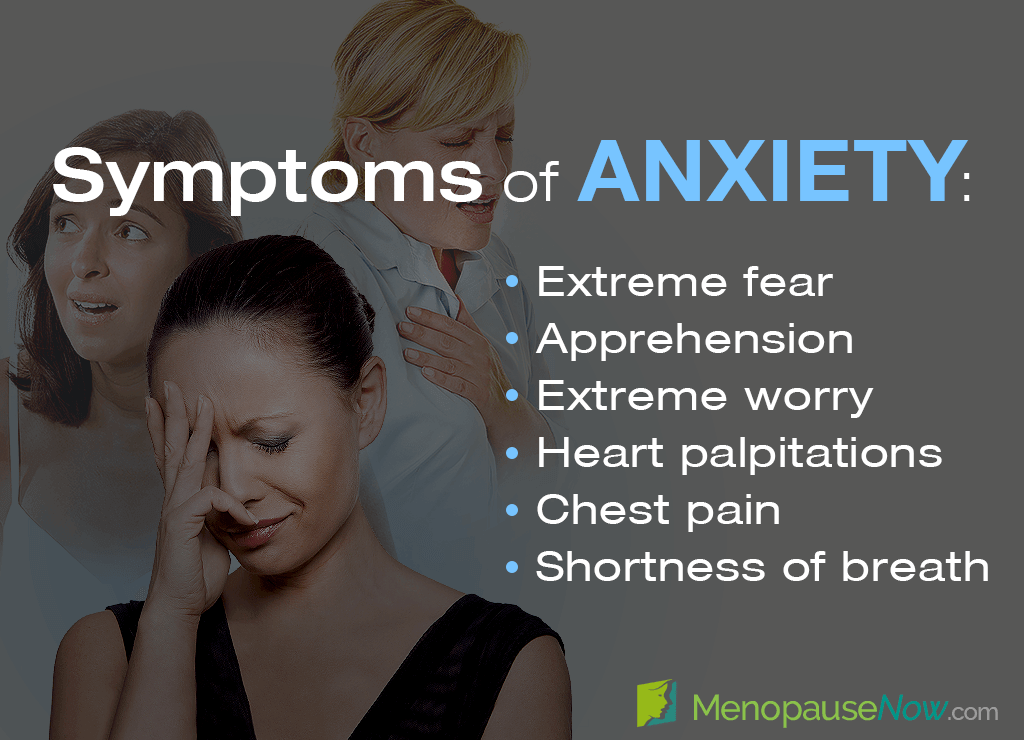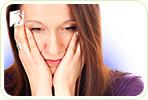Although unsettling and troublesome, persistent and pervasive anxiety is shared by many women undergoing menopause. In order to soothe the sensations of menopause-related anxiety, one must first attempt to understand the underlying factors contributing to it.
Read over the following information concerning the various causes and treatments for anxiety in menopausal women.
Why Does Anxiety Strike 46-Year-Old Women?
- Extreme fear
- Apprehension
- Extreme worry
- Heart palpitations
- Chest pain
- Shortness of breath
While nearly everyone will experience some level of anxiety during their lives, women around the age of 46 might find themselves experiencing more prolonged episodes of general unease because of the hormonal disarray caused by perimenopause.
Due to estrogen's role in regulating our body's serotonin levels, the hormone that controls mood, when menopause fluctuations cause it to drop, anxiety can be just one result.
Perimenopause begins as a woman nears her menopause date. Because the average age of menopause is 51, 46-year-old women are generally right in the heat of the transition.
Moreover, it is sometimes possible to pinpoint menopause-related anxiety due to the accompanying presence of other common menopausal symptoms. These may include hot flashes, night sweats, mood swings, loss of libido, and irregular periods, among others.
What Else Can Cause This Anxiety?
While the hormonal imbalance is a prime factor in anxiety in menopausal women, the condition could also be triggered by psychological causes or other medical conditions.
Psychological causes
Psychological causes can be further divided into two classifications: those related to genetic psychological disorders (hereditary) and those associated with the consequences of stress (environmental).
Those suffering from hereditary anxiety disorders experience them because of a predisposed chemical imbalance in the brain. On the other hand, those suffering from environmental anxiety disorders have destabilized emotional states due to the experiences of daily life and the stresses it can cause.
Medical conditions
There are a broad array of medical conditions that can cause anxiety as a symptom, including thyroid problems, diabetes, heart disease, and respiratory disorders, among others.
What Can Be Done?
Identifying whether anxiety is triggered by psychological or physiological factors is vital to identifying an effective treatment.
If anxiety is due to mental health factors, it must be treated by attending a psychiatrist or a licensed therapist, who can instruct you on appropriate steps to take.
If triggered by medical conditions, undergoing a thorough physical exam to pinpoint the underlying cause is an essential step towards finding relief.
If due to environmental triggers, practicing stress-relief techniques and instilling a regular exercise regime can positively affect chemicals in the brain that control mood, thus relieving anxiety.
If anxiety is due to menopause, a hormone-balancing program may prove the most effective solution. The least invasive way is through lifestyle changes and alternative medicine. Learn more about natural and effective anxiety treatments by clicking on the link.
Sources
- Cleveland Clinic. (2017). Anxiety Disorders. Retrieved February 20, 2019, from https://my.clevelandclinic.org/health/diseases/9536-anxiety-disorders
- Mayo Clinic. (2018). Anxiety disorders: Symptoms & causes. Retrieved February 20, 2019, from https://www.mayoclinic.org/diseases-conditions/anxiety/symptoms-causes/syc-20350961




